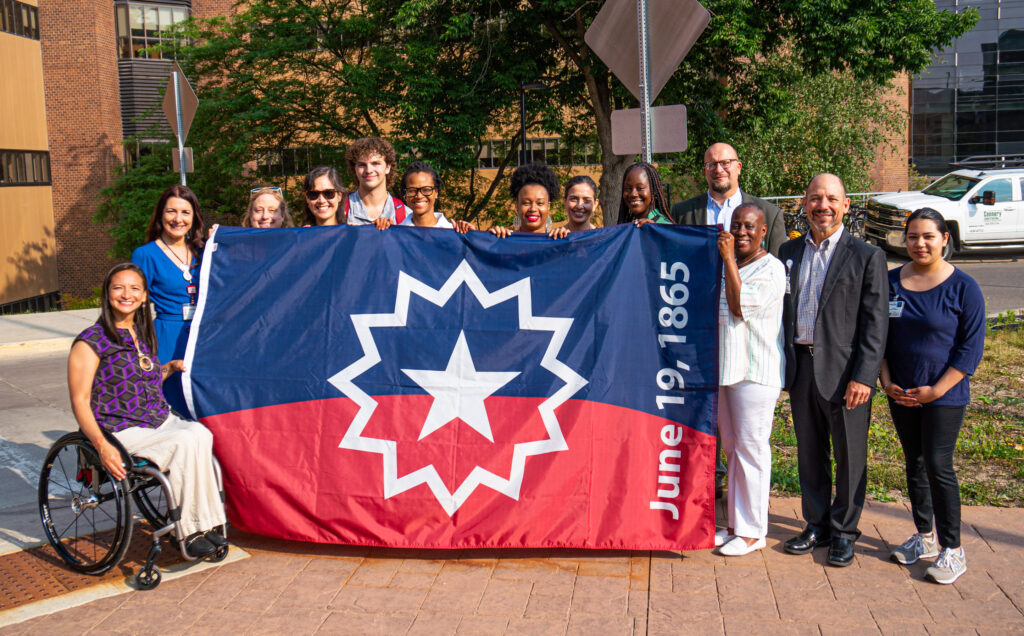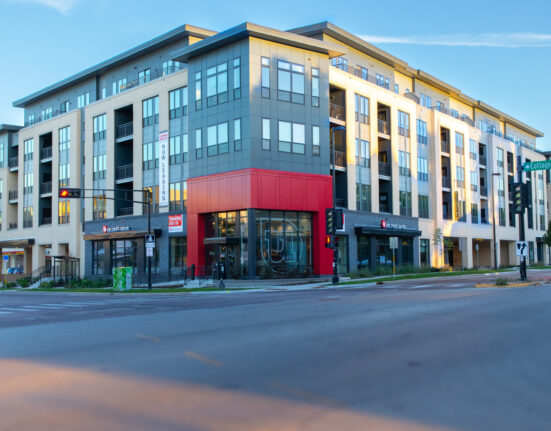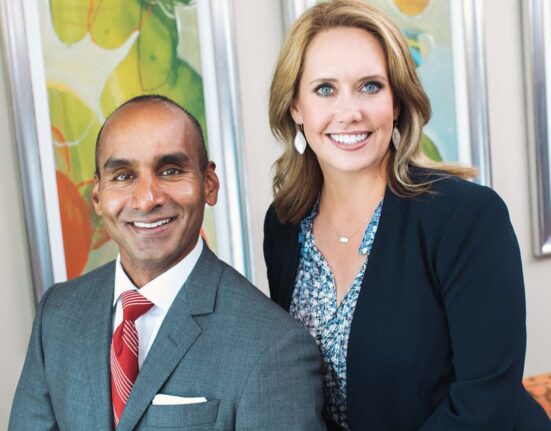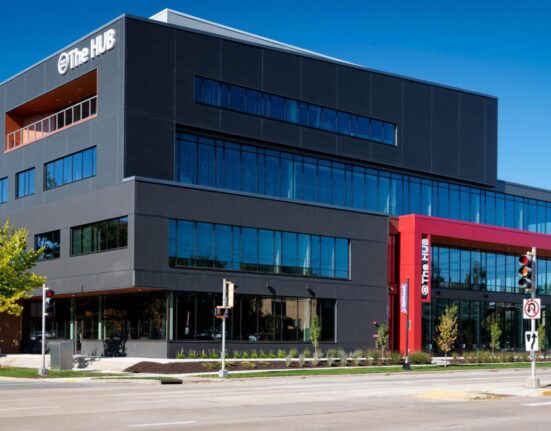
Juneteenth flags were raised at University Hospital and American Family Children’s Hospital on Monday “as a means of reaffirming UW Health’s commitment to anti-racism,” according to a press release.
This year also marks 15 years that UW Health has sponsored Madison’s Juneteenth Celebration through the Kujichagulia Madison Center for Self-Determination.
Juneteenth is an opportunity to reflect on what can be done every day to address the legacy of slavery, said UW Health chief diversity officer of UW Health.
“Juneteenth is a time to recommit to our daily work to address disparities, but our work extends well beyond Juneteenth,” she said in a statement. “Working to improve the health of our patients requires addressing the social and systemic health disparities in our community every day.”
Everyone at UW Health plays an important part in anti-racism work, collaborating both across the organization and throughout the community, according to UW Health CEO Dr. Alan Kaplan.
“Our population health, community relations and diversity, equity and inclusion teams are working with care teams and services throughout UW Health to address health inequities and support community organizations,” he said in a statement.

In a press release Monday, UW Health touted its many longstanding community partnerships that “enable the health system to work directly with Black community leaders to address the health and equity needs they see,” investing $5 million annually into communities of color and health equity initiatives.
One of its major community partners, the Foundation for Black Women’s Wellness, celebrated its 10th anniversary in 2022, a milestone facilitated by UW Health, according to Lisa Peyton-Caire its founder, CEO and president.
“Our persistence and growth over the last decade as a leading Black women’s health organization in Dane County and Wisconsin have been facilitated by partners like UW Health who have invested in and supported our work from day one,” Peyton-Caire said in a statement. “We are now in a position to partner more deeply with them and others to create viable solutions around big issues like Black maternal and child health improvement where we are working together to eliminate racial birth disparities in our community.”
Meadowood Health Partnership is another organization that UW Health has partnered with for years to address racism and disparities in the Madison area.
“UW Health has been an active and committed partner in addressing racism and disparities in our community for years. They have been instrumental to our work to improve housing access, and equitable access to community resources and health information,” founder and director Sheray Wallace said in a statement. “We are proud to work alongside them in our ongoing efforts to address racial disparities.”
UW Health has played a crucial role in supporting the community in a variety of ways, according to Anthony Cooper Sr., president and CEO, Focused Interruption.
“Through their leading efforts and willingness to take action, they have become unsung heroes in the eyes of many. Their contributions to the community go beyond just providing health care services, as they have also been involved in initiatives that promote community health and well-being,” he said in a statement. “Their commitment to the community has earned them the respect and gratitude of many, who see them not just as a partner, but as an integral part of the community.”
As partners and the clinical host site of the ConnectRx program, UW Health has hired a culturally and racially concordant workforce of community health workers who are working with doulas and community-based organizations to support better perinatal health outcomes for Black mothers, birthing people and babies.
“Through the innovative ConnectRx care coordination model that we’ve built as members of the Dane County Health Council and with community partners like the Foundation for Black Women’s Wellness, EQT by Design, the Black Maternal and Child Health Alliance, and Black doulas, we are serving more than 400 Black families each year to address social needs like housing and food insecurity during pregnancy and up to one year postpartum,” UW Health community health improvement director Adrian Jones said in a statement. “We are thrilled that 101 Black babies have celebrated their first birthdays participating in the program.”
UW Health also has robust work underway to increase workforce diversity through system-wide initiatives that include education and training support, hiring events and equitable hiring policies and practices.
“There is much work to be done but we are proud to be leaders in this work and continue to invest in the staff, resources and community capacity needed in our unwavering commitment to antiracism,” Kaplan said in the statement.






